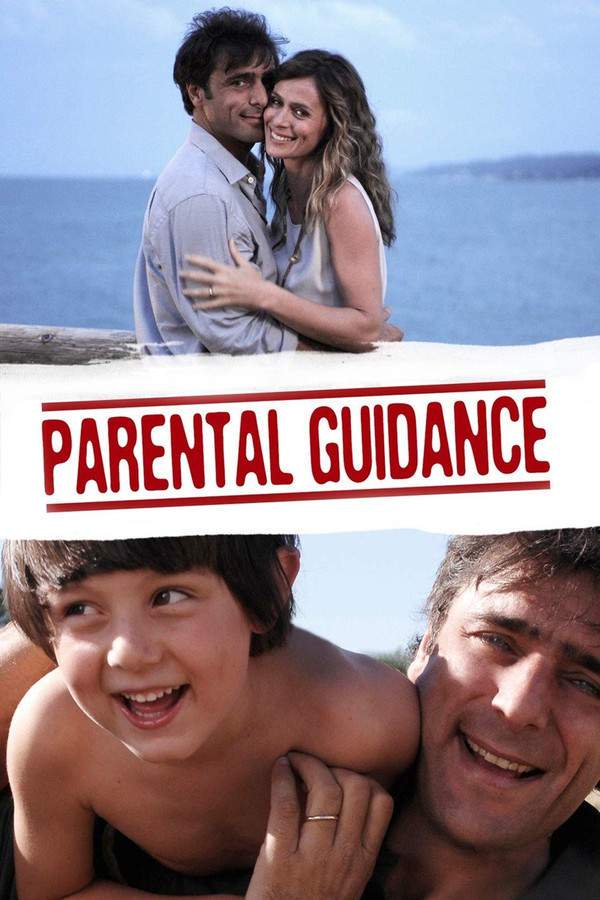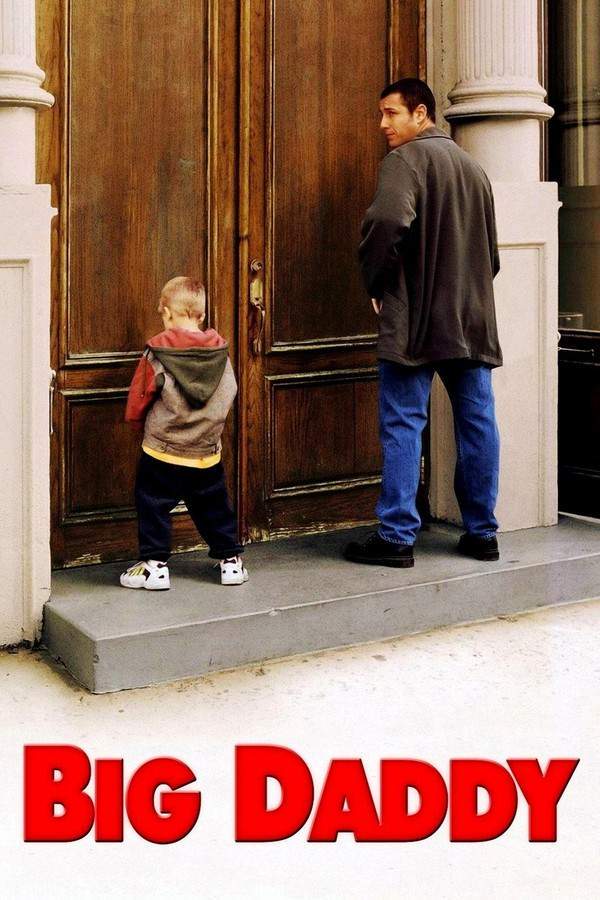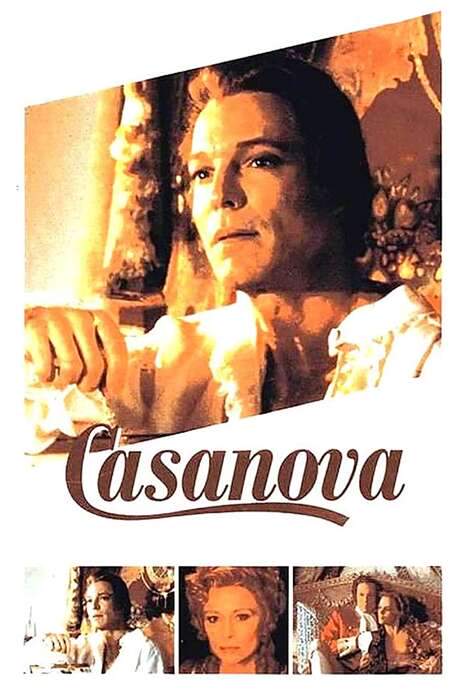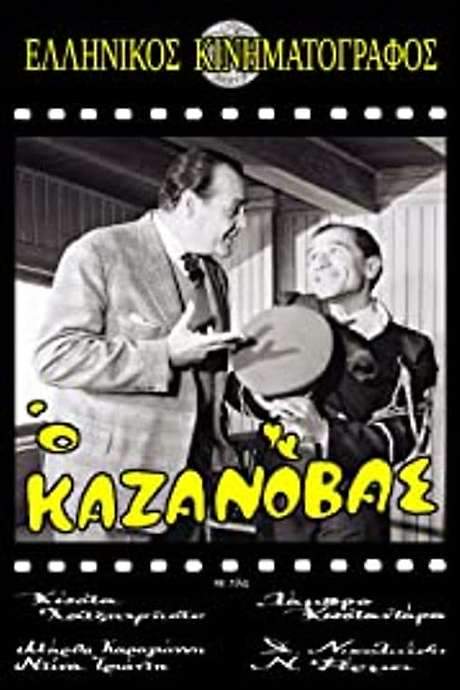
Casanova Brown
Year: 1944
Runtime: 94 mins
Language: English
Director: Sam Wood
Cass Brown is preparing for his second wedding after his first marriage to Isabel was annulled. When he learns that Isabel has given birth to their child, he kidnaps the baby to prevent her adoption. Isabel’s parents launch a search for the infant, only to realize that Cass and Isabel remain hopelessly in love.
Warning: spoilers below!
Haven’t seen Casanova Brown yet? This summary contains major spoilers. Bookmark the page, watch the movie, and come back for the full breakdown. If you're ready, scroll on and relive the story!
Casanova Brown (1944) – Full Plot Summary & Ending Explained
Read the complete plot breakdown of Casanova Brown (1944), including all key story events, major twists, and the ending explained in detail. Discover what really happened—and what it all means.
Casanova Brown arrives in the small town of Rossmore, Illinois by train, a college professor with a restless heart who has spent years refining his rakish charm. He is greeted by his socialite fiancée, Madge Ferris, and the scene quickly establishes the tangled mix of affection, pride, and complication that follows them. Casanova Brown wants a straightforward life with Madge, but her father, Mr. Ferris, warns him that meddlesome family expectations and social pressures could turn marriage into a predicament rather than a partnership. The vibe is light, but the undercurrents hint at a deeper history between Casanova and the world he’s about to join.
Cas attempts to lock down the future he longs for, but a letter from a Chicago maternity hospital interrupts the plan. He heads off, promising to return in time for the wedding, only to share a tale that riffs on a past romance that nearly destroyed him. In telling Isabel Drury’s story, Cas reveals that his attempts at publishing a sensational book about the famed 18th-century lover Casanova backfired, and his friendship with Isabel became something more—an affair that was as passionate as it was doomed. The memory of their forbidden bond—Isabel’s mother’s stern warnings, Isabel’s own doubts, and the couple’s eventual rift—hangs over the narrative like a ghost of what could have been.
At the maternity hospital, Cas undergoes a battery of tests that are described as routine—but their purpose is uncertain to him. A nurse explains that the tests confirm his good health, yet the real shock comes when Dr. Dr. Zernerke reveals that Isabel has had a baby girl, and that the hospital records are meant to document the adoption process. When Cas reunites with Isabel, she confirms the baby is biologically his and that she intends to place the child for adoption, a decision made with a mixture of grief, practicality, and a desperate wish to shape their own destiny.
Driven by a fierce, impulsive love, Casanova Brown crafts a risky plan. He disguises himself as a doctor and abducts the infant, slipping away to a local hotel and leaving behind his wedding plans with Madge to handle the consequences later. In the hotel, he enlists two trusted allies to help him care for the baby: Monica Case, the maid and Frank, the bell captain. The trio—touched by a baby’s vulnerability and driven by a shared sense of responsibility—tends to the infant with surprising tenderness. The hotel becomes a strange little sanctuary where a makeshift family forms, and Cas confronts the gap between his roguish past and the possibility of a responsible future.
To keep the baby safe, Cas proposes to Monica Case—a plain, practical woman who sees a chance for stability and companionship in a life with a child. Monica accepts, and the couple, along with Frank, begins to navigate the implications of their improvised situation as they move toward City Hall. The situation is complicated by Isabel’s plan, which becomes clear: her adoption ploy is a ruse to coax Cas into acknowledging his true feelings and to reveal where his loyalties truly lie.
Meanwhile, the various parties—Isabel, Dr. Drury, Mrs. Drury, and Madge with her father Mr. Ferris—converge on the hotel as Cas tracks his own heart. The tension thickens as the truth about Cas and Monica’s non-marital status surfaces; Chicago’s three-day waiting period for civil marriage becomes a catalyst that pushes the characters toward a candid reckoning about love, legitimacy, and what makes a family.
The film threads its humor, warmth, and emotional depth through a series of intimate, character-driven moments. There are humorous misunderstandings, tender exchanges, and small acts of courage as the makeshift family—Cas, Isabel, and the baby—negotiate the line between fate and choice. The Hotel Manager and other incidental figures, including Nurse Crampton and Best Man (among others), populate the world with texture, while the central relationship arc intensifies around Cas’s evolving sense of responsibility and belonging.
As the tale unfolds, the initial spark of Cas’s romance with Isabel evolves into a quiet, stubborn commitment to a life they can share. The revelation that Cas and Monica’s engagement was born out of necessity rather than social convention reframes their decision; the couple’s legal status becomes less important than the love and stability they prove they can provide to the baby. With the support of those who care about their welfare, and with the patient, stubborn sincerity that has always defined Cas’s character, the trio—Cas, Isabel, and the baby—finds a way to become a true family at last.
In the end, the film leaves the impression that love can transcend the prickly boundaries of reputation and expectation when honesty, tenderness, and shared responsibility guide the way. The story resolves not with a grand gesture, but with a sincere, hopeful reconciliation: Cas and Isabel acknowledge the bond they share, Madge accepts the shifting currents of love, and a new family unit forms around the child, built on trust, mutual respect, and the quiet courage to choose a life together. The result is a magnetic blend of comedy and sentiment, anchored by memorable performances and a premise that asks what it truly means to belong—and to become a family—despite the odds.
Last Updated: October 09, 2025 at 14:06
Explore Movie Threads
Discover curated groups of movies connected by mood, themes, and story style. Browse collections built around emotion, atmosphere, and narrative focus to easily find films that match what you feel like watching right now.
Romantic comedies with charming chaos like Casanova Brown
Stories where love triumphs through a series of charmingly absurd misadventures.If you enjoyed the lighthearted mix of romance and comedy in Casanova Brown, you'll love these movies. These stories feature couples who find their way back to each other through a series of humorous and heartwarming misadventures. Discover more films that balance tender moments with gentle, comedic chaos.
Narrative Summary
The narrative often follows a couple—sometimes reuniting, sometimes new—whose path to happiness is paved with comical misunderstandings, unconventional situations, and a supporting cast of eccentric characters. The conflict arises from situational humor and societal foibles rather than deep anguish, ensuring the journey remains enjoyable and the destination is a satisfying, happy union.
Why These Movies?
These films are grouped together because they share a core DNA of using humor to explore romance. They prioritize a light tone, steady pacing that keeps the story moving, and a focus on the joyful, chaotic side of falling in love, making them perfect for viewers seeking an uplifting and amusing experience.
Movies about unexpected parenthood and family like Casanova Brown
Heartwarming tales where families are formed through unexpected and unconventional circumstances.Fans of Casanova Brown's theme of unexpected parenthood will enjoy these films about forging family bonds. These stories explore how characters step up to care for a child or build a family unit through surprising events. Find more movies that celebrate the humorous and heartwarming side of personal responsibility and found family.
Narrative Summary
The plot typically revolves around a character who is initially unprepared for family life, often due to a sudden responsibility like an unexpected child. Through a series of events that blend humor with tender moments, the protagonist learns to embrace their new role, discovering a deep capacity for love and commitment that they never knew they had, leading to a hopeful and fulfilling resolution.
Why These Movies?
These movies share a central theme of familial love emerging from unconventional situations. They balance a light emotional weight with meaningful character growth, focusing on the positive, life-affirming journey of creating a family against the odds, which creates a consistently warm and hopeful viewing experience.
Unlock the Full Story of Casanova Brown
Don't stop at just watching — explore Casanova Brown in full detail. From the complete plot summary and scene-by-scene timeline to character breakdowns, thematic analysis, and a deep dive into the ending — every page helps you truly understand what Casanova Brown is all about. Plus, discover what's next after the movie.
Casanova Brown Timeline
Track the full timeline of Casanova Brown with every major event arranged chronologically. Perfect for decoding non-linear storytelling, flashbacks, or parallel narratives with a clear scene-by-scene breakdown.

Characters, Settings & Themes in Casanova Brown
Discover the characters, locations, and core themes that shape Casanova Brown. Get insights into symbolic elements, setting significance, and deeper narrative meaning — ideal for thematic analysis and movie breakdowns.

Casanova Brown Spoiler-Free Summary
Get a quick, spoiler-free overview of Casanova Brown that covers the main plot points and key details without revealing any major twists or spoilers. Perfect for those who want to know what to expect before diving in.

More About Casanova Brown
Visit What's After the Movie to explore more about Casanova Brown: box office results, cast and crew info, production details, post-credit scenes, and external links — all in one place for movie fans and researchers.

Similar Movies to Casanova Brown
Discover movies like Casanova Brown that share similar genres, themes, and storytelling elements. Whether you’re drawn to the atmosphere, character arcs, or plot structure, these curated recommendations will help you explore more films you’ll love.
Explore More About Movie Casanova Brown
Casanova Brown (1944) Scene-by-Scene Movie Timeline
Casanova Brown (1944) Movie Characters, Themes & Settings
Casanova Brown (1944) Spoiler-Free Summary & Key Flow
Movies Like Casanova Brown – Similar Titles You’ll Enjoy
Casanova, Last Love (2021) Film Overview & Timeline
Casanova (2005) Ending Explained & Film Insights
Casanova, Last Love (2019) Full Movie Breakdown
Casablanca, Casablanca (1985) Complete Plot Breakdown
Casanova (1987) Complete Plot Breakdown
A Reckless Romeo (1917) Ending Explained & Film Insights
Casanova & Co. (1977) Complete Plot Breakdown
The Return of Casanova (1992) Film Overview & Timeline
Loves of Casanova (1927) Spoiler-Packed Plot Recap
Born to Be Bad (1950) Film Overview & Timeline
Adventures of Casanova (1948) Detailed Story Recap
Casanova (1963) Movie Recap & Themes
Jenny (1970) Story Summary & Characters
Cass Timberlane (1947) Plot Summary & Ending Explained
Cluny Brown (1946) Movie Recap & Themes













































